Russia-North Korea alliance against Ukraine — Threats and Accountability
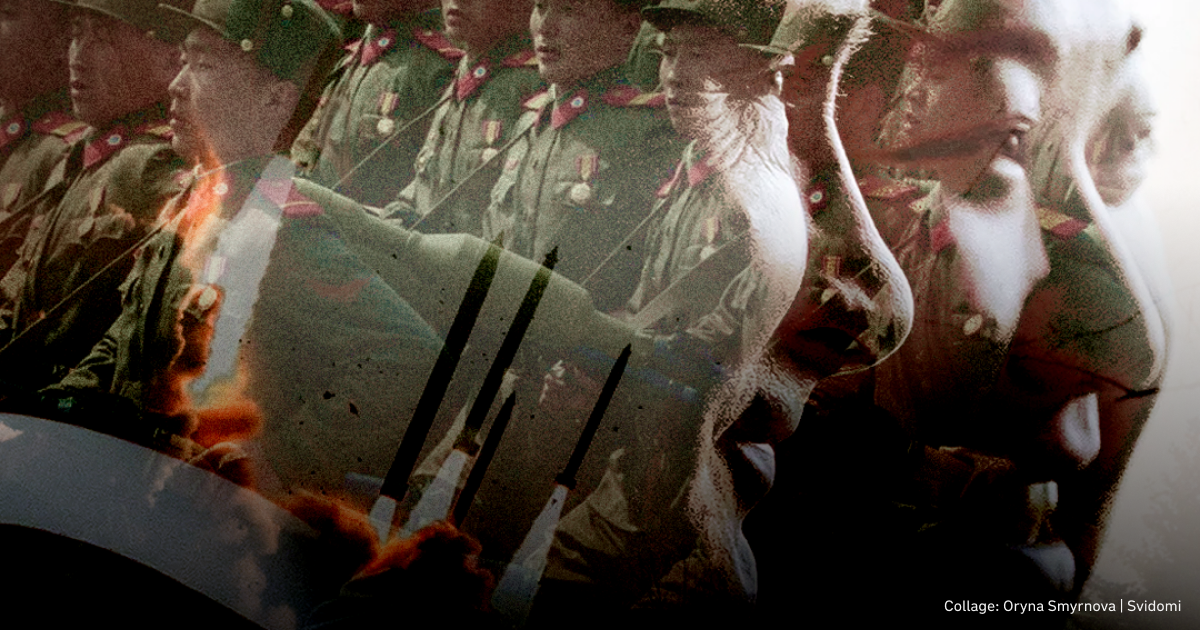
On October 16, Suspilne reported, citing a source in Ukrainian intelligence, that Russia is preparing some 10,000 soldiers from North Korea to take part in the war against Ukraine. On October 17, Ukrainian Foreign Minister Andrii Sybiha said at a press conference with his Norwegian counterpart Espen Barth Eide that North Korea was sending not just mercenaries but full-fledged military units to fight alongside Russia.
On October 18, the head of the Main Intelligence Directorate, Kyrylo Budanov, confirmed that Russian forces were training North Korean soldiers for the war in Ukraine, estimating the number at about 11,000. "They will be ready to fight in Ukraine by November 1," he said.
Svidomi investigates why Russia has involved North Korea in the war against Ukraine and whether North Korea could be held accountable for helping Russia in the conflict.
Why did Russia involve North Korea in the war in Ukraine?
On June 19, 2024, North Korean Supreme Leader Kim Jong Un and Russian President Vladimir Putin signed a cooperation agreement in Pyongyang aimed at "deepening ties" through technical, economic, and especially military cooperation between the two countries.
"The comprehensive partnership agreement signed today provides, among other things, for mutual assistance in the event of aggression against one of the parties to this agreement," Putin said.
This was not the first time Kim Jong Un publicly supported Russia since its full-scale invasion of Ukraine in February 2022. By late 2023, North Korea was supplying Russia with artillery shells and ballistic missiles. In June 2024, the South Korean Defense Ministry reported that North Korea had provided Russia with approximately five million artillery shells since the fall of 2023.
"In return for the munitions, Russia has sent to North Korea technology to help in its plans to deploy an array of spy satellites as well as conventional weapons such as tanks and airplanes," the South Korean Defense Ministry said.
In October 2024, Vladimir Putin submitted a proposal to the Russian parliament to ratify a "comprehensive strategic partnership" treaty between Russia and North Korea. Around this time, Ukrainian intelligence and senior officials began making public statements that North Korea was providing not only weapons but also troops to Russia.
On October 13, Ukrainian President Volodymyr Zelenskyy noted that the treaty's ratification is not only about weapons but also about people.
"This is effectively a transfer of people from North Korea to the occupying military. Obviously, under these conditions, our relations with partners need to be strengthened. The front needs more support," Zelenskyy said.
On October 18, the Ukrainian Center for Strategic Communications and Information Security released OSINT data showing North Korean soldiers at the Sergeyevskiy training ground in Russia's Far East, where they received equipment from Russian military personnel.
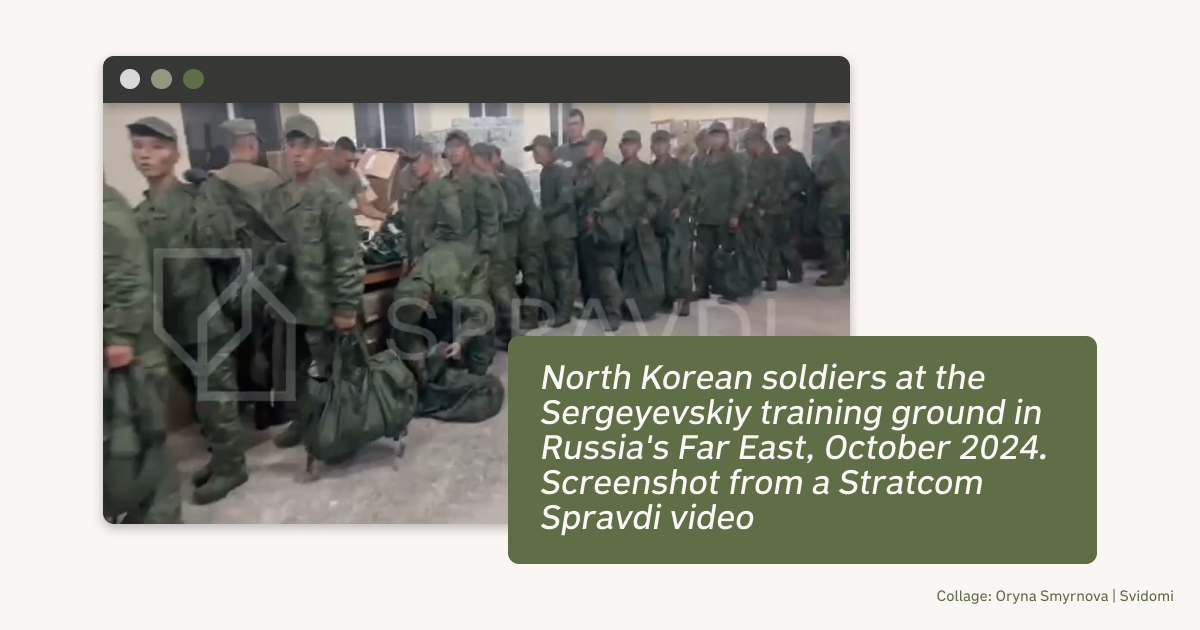
Russia is actively looking for ways to strengthen its army. In September 2024, Vladimir Putin issued a decree to increase Russia's military personnel to 1.5 million — 180,000 more than initially planned.
Russia has been recruiting foreigners to bolster its forces. Ukrainian forces have captured citizens from Nepal, and the Nepalese government has reported that about two thousand of its citizens have joined the Russian army as mercenaries. Russia also recruits citizens from Cuba, Syria, and India. However, these individuals are considered mercenaries who have voluntarily joined Russia's ranks, not representatives of their countries as allies of Russia.
The North Korean armed forces number approximately 1.28 million. In North Korea, men serve up to 12 years, and women up to five years. Thus, transferring about 12,000 soldiers to Russia represents less than 1% of North Korea's regular army. This cooperation may continue as Russia faces personnel shortages in its military.
Ivan Stupak, a former officer in the Security Service of Ukraine (SSU) and now an adviser to the Ukrainian parliament's national security, defense, and intelligence committee, says North Korea's involvement underscores Russia's manpower challenges.

"Russia is indeed approaching the limit of its ability to recruit people. Sooner or later, they will reach a plateau. To support this notion, Russia has increased the one-time payment for signing a contract more than 70 times. The current maximum payment in the Belgorod region is $31,000, whereas before, it was 40,000 rubles (approx. $411— ed.). I think even $40,000 is possible,"
he said.
Stupak suggests that the involvement of North Korean troops is merely a cost-saving measure for Russia.
"We don't know yet what the role of these troops will be. They could be assault units, special forces, or engineering troops that might be limited to certain regions. If they are sent to Ukraine, the Kremlin has calculated that it's cheaper to send a few trainloads of grain or aircraft blueprints or even Soviet-era nuclear weapons designs in exchange for personnel," he added.
On October 23, Kyrylo Budanov, head of Ukraine's Main Intelligence Directorate, reported that Russia would provide North Korea with money and technology for nuclear weapons development in exchange for North Korean soldiers and ammunition. The North Korean forces deployed include at least 500 officers and three generals, who are expected to be stationed in the Kursk region, where the Ukrainian Defense Forces have been conducting operations since August 2024.
Russian military personnel are currently conducting basic military training and combat coordination exercises with North Korean soldiers. According to the Ukrainian media outlet Defense Express, this indicates that North Korean troops will be deployed "in formation" alongside Russian forces under Russian command.
How other countries reacted to Russia's involvement in the North Korean war
Initially, Ukraine's partners and their intelligence agencies were sceptical of Ukraine's claims that North Korean soldiers had been sent to Russia. NATO Secretary General Mark Rutte stated that "there is no evidence of Pyongyang's presence at this stage" in Russia.
On October 19, U.S. Secretary of Defense Lloyd Austin reported that he "could not confirm" the deployment of North Korean troops to Russia. According to Austin, such a move by North Korea would be "concerning" if this information proved to be accurate.
However, on October 21, Lloyd Austin made an unannounced visit to Kyiv, where he announced a new U.S. military aid package for Ukraine worth $400 million, which included ammunition, equipment, and strengthened air defenses.
French Foreign Minister Jean-Noël Barrot, during his trip to Kyiv on October 19, declared that the deployment of North Korean soldiers in the war against Ukraine would be considered an "escalation," adding that it reflected internal issues in Russia's war effort.
On October 22, British Defense Minister John Healy told Parliament that it was "likely" that North Korea had sent military personnel to Russia to support the war against Ukraine. "In a concerning new development, it is now highly likely that the transfer of hundreds of combat troops from North Korea to Russia has begun," he commented.
Only on October 23 did the U.S. confirm that North Korean soldiers had indeed arrived in Russia. However, the Pentagon did not know their purpose for being there, said U.S. Secretary of Defense Lloyd Austin.
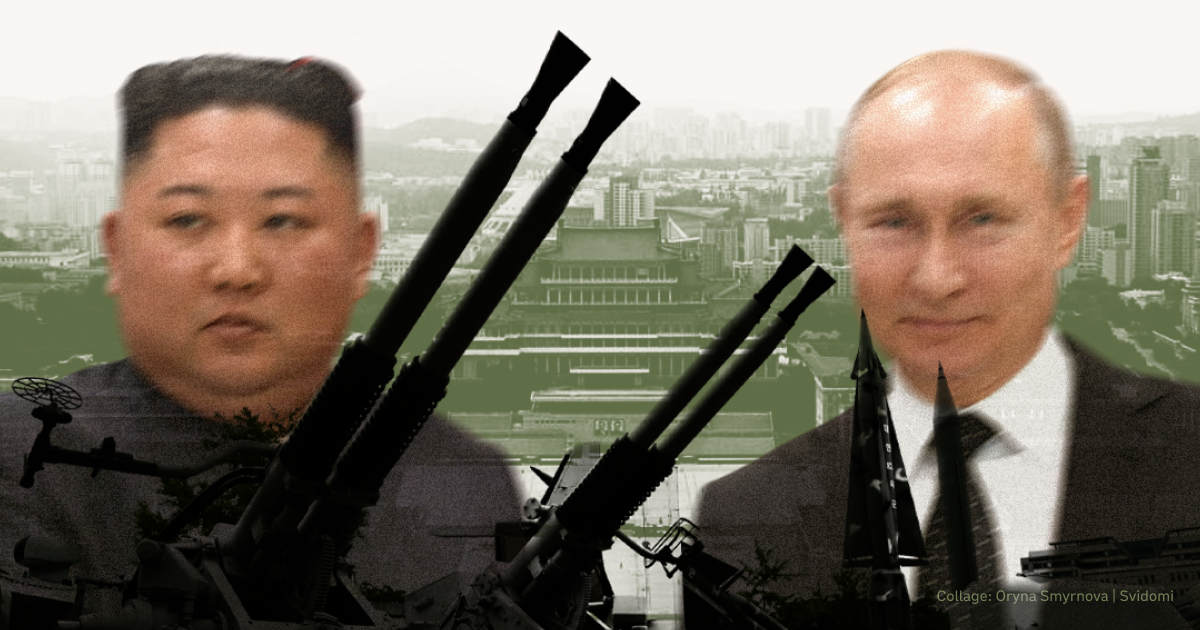
Meanwhile, South Korea was quick to confirm the presence of North Korean soldiers training in Russia. This is not the first time South Korea has responded to North Korea's support for Russia in the war against Ukraine. In January 2024, South Korean intelligence reported that North Korea had provided Russia with ballistic missiles, as well as officers to maintain them and train Russian troops in their use. South Korean intelligence worked with Ukrainian intelligence to identify these North Korean officers.
On October 18, South Korea confirmed the arrival of at least 1,500 North Korean troops in Russia, including special forces.
On October 21, South Korean Vice Foreign Minister Kim Hong-kyun summoned the Russian ambassador and demanded the "immediate withdrawal" of North Korean troops from Russia. The South Korean Foreign Ministry announced that it would "respond with all available means" to the deployment of North Korean soldiers in Russia.
North Korea itself denied the presence of its soldiers in Russia and their preparation for participation in the war against Ukraine. A North Korean representative to the UN General Assembly called this information "rumors aimed at undermining friendly relations" between the country and Russia.
On October 22, Ukrainian President Volodymyr Zelenskyy confirmed Russia's training of two military units from North Korea, saying it involved two brigades of 6,000 troops each.
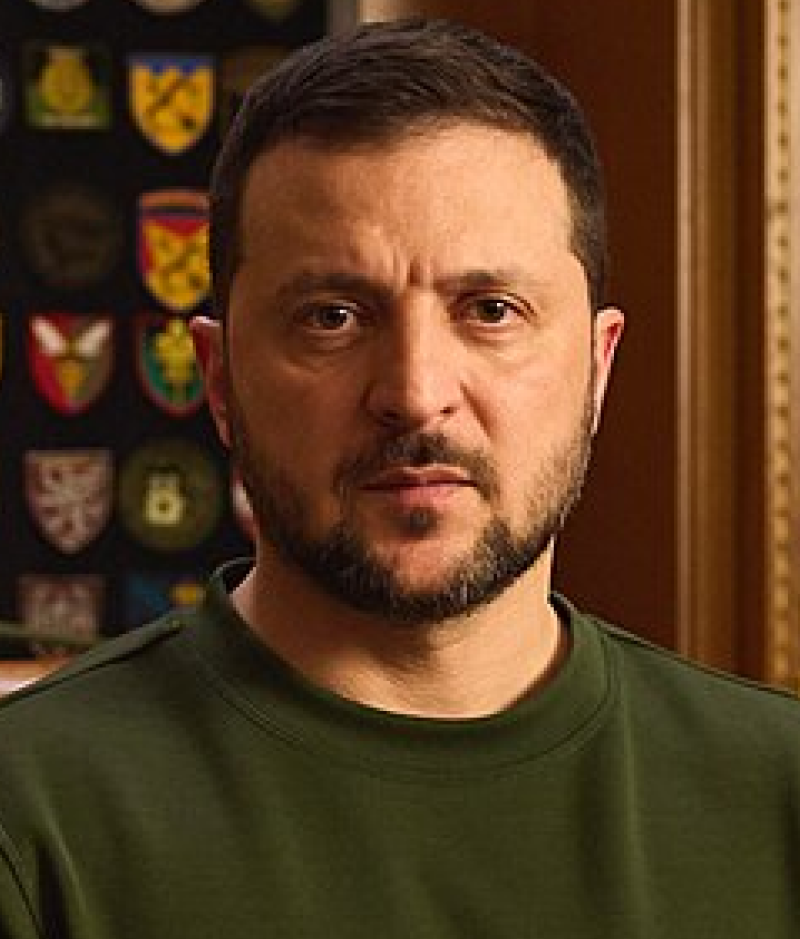
"If North Korea can intervene in a war in Europe, it means there's not enough pressure on this regime,"
Zelenskyy said.
Can North Korea be held accountable for supporting Russia in the war?
Ukraine is currently raising the issue of blaming Russia for the war. This is part of Ukraine's peace formula and part of President Zelenskyy's plan for victory. On February 26, 2022, Ukraine filed a complaint with the International Court of Justice, arguing that Russia is misusing the International Genocide Convention to justify its full-scale invasion.
But is it possible to hold the Democratic People's Republic of Korea accountable for its participation in the war against Ukraine? North Korea is already supplying Russia with domestically produced weapons for use against Ukraine, and Russia and North Korea have signed partnership agreements, including on security. Now, North Korean soldiers are taking part in the war on Russia's side.
Presenting the victory plan, Zelenskyy noted that North Korea's participation in the war is "the participation of a second state in the war against Ukraine on the side of Russia.
"In the coalition of criminals with Putin, there is now North Korea — the Kim family, which enslaves more than 20 million Koreans," the president stressed.
Ukraine already has a precedent — Iran, which in 2022 began supplying Russia with its domestically produced attack drones for use against Ukraine. In 2024, Iran supplied Russia with ballistic missiles. In 2024, Iran transferred all production technology for these drones to Russia, which now manufactures them on its own soil.
Such actions against Iran have led to sanctions. In October 2024, the European Union imposed sanctions on seven individuals and seven entities in response to Iran's transfer of missiles and drones to Russia. The list includes three Iranian airlines (Saha Airlines, Mahan Air, and Iran Air), two procurement companies, and two companies involved in producing missile and munitions fuel.
However, Ukraine has not yet raised the issue of criminal accountability for Iran for providing weapons to Russia for the war. Ukraine calls Iran a "partner" of Russia and insists on sanctions against Iranian companies that produce these weapons and seek to procure components for them.
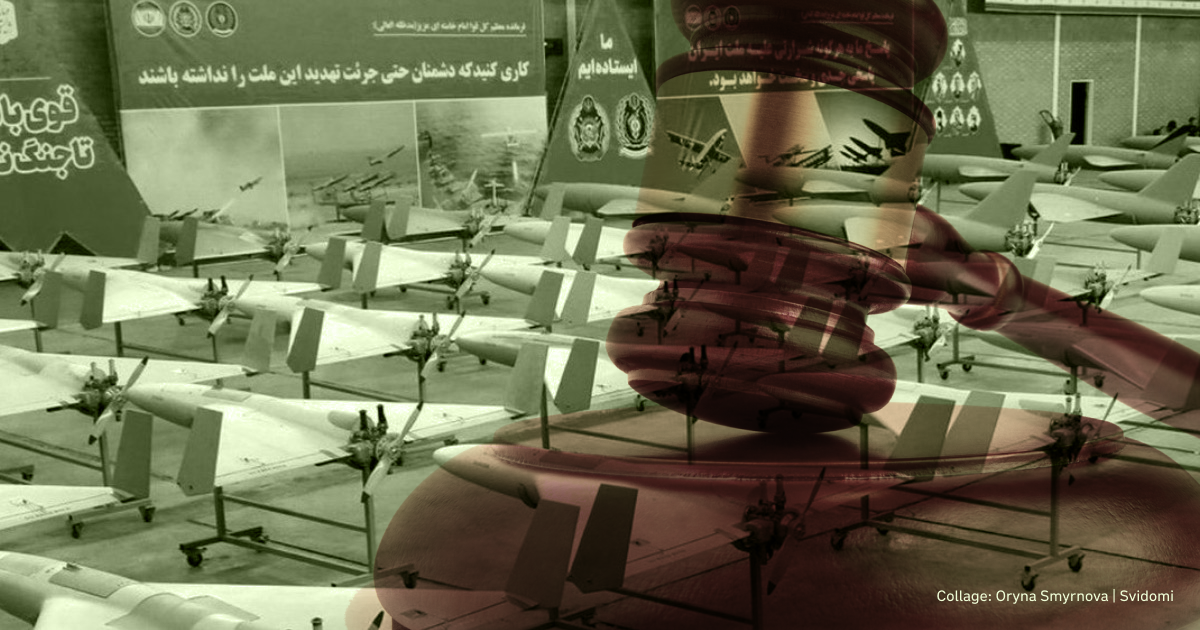
By deploying its troops, North Korea could violate international law and be classified as an aggressor in the war against Ukraine. This depends on Ukraine's ability to gather evidence of this partnership between Russia and North Korea and prove it before the International Criminal Court.
Andrii Yakovlev, a lawyer, managing partner of the law firm Umbrella, and an expert on international humanitarian law, international criminal law, and human rights law with the NGO Media Initiative for Human Rights, says that this will be a challenging process for Ukraine. He notes that it will be difficult to hold North Korea accountable.
"Although the crime of aggression focuses on the illegal actions of one state against another, only the leader and the top political-military leadership of a country can be held accountable in a court of law," he explains.
Yakovlev clarifies that soldiers provided by North Korea to Russia could only be held accountable for war crimes, not mere participation in the conflict.
"No matter how strange it may sound, military personnel of an aggressor state like Russia can participate in military operations and would be criminally liable only if they commit war crimes, such as intentionally killing civilians or other serious violations of international humanitarian law. There is no criminal liability under international law for mere participation in combat," he adds.
International law regarding North Korea's possible direct involvement in Russia's war against Ukraine is quite limited. For now, it is difficult to prove anything, as it depends on the actions of North Korean soldiers who may appear on the front lines.
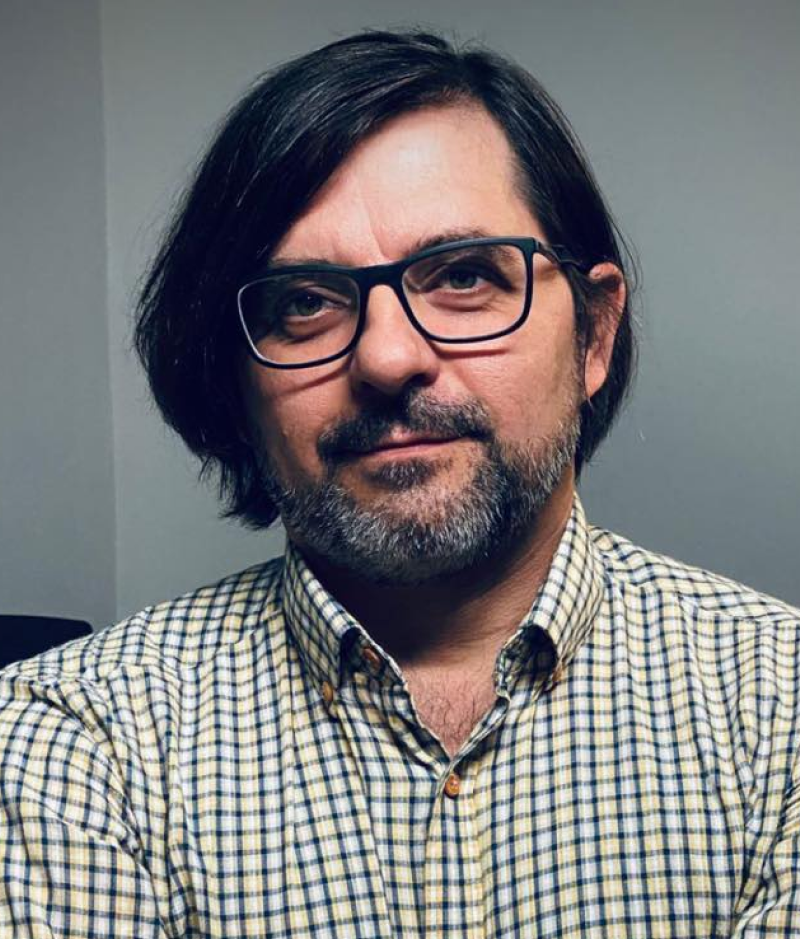
"At this point, it's unclear on what legal basis the North Korean military will be or is already involved. In certain cases, they could be classified as mercenaries. This issue requires a detailed analysis of specific circumstances and evidence,"
concludes Andrii Yakovlev.


